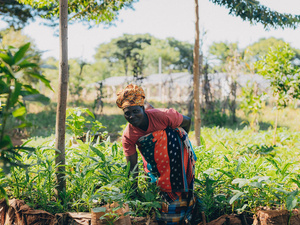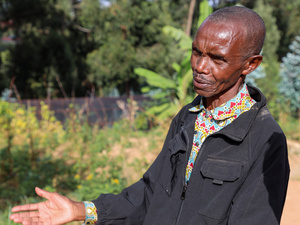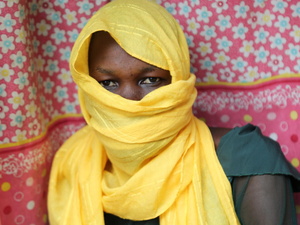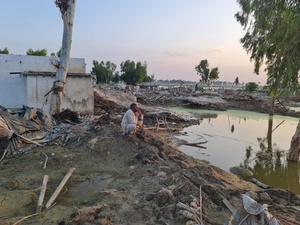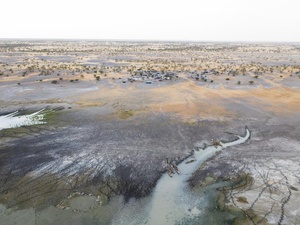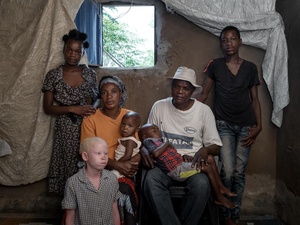'I think of refugees as a testament to the strength and goodness of the human spirit'
'I think of refugees as a testament to the strength and goodness of the human spirit'
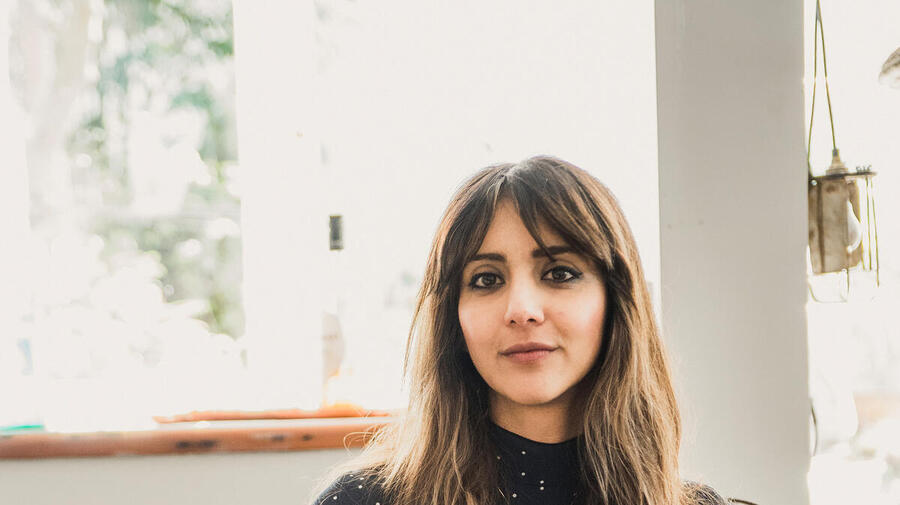
Golriz Ghahraman fled Iran with her family at the age of nine. She was sworn in as an MP in New Zealand in 2011.
Golriz Ghahraman, 41, arrived in New Zealand with her family in 1990 after fleeing Iran. Prior to making history in 2011 as New Zealand’s first ever refugee MP, she was a human rights lawyer for the United Nations. In 2020 she released her autobiography, Know Your Place, which unpacks the realities of starting over in a new country, and what it takes to find a place to belong. Ahead of International Women’s Day, UNHCR caught up with Golriz to discuss how being a woman with a refugee background impacts her politics today.
You were just nine years old when you fled Iran with your family. What are your most vivid memories of that time, and how did becoming a refugee at such a young age help shape the course of your life?
People think of refugees often as being defined by our displacement, but there's a whole life before that. I was just a very normal nine-year-old. You know, I had my school friends and my cousins and my room that I was so proud of. There is this other life that isn't about war and oppression and the flight to safety.
I knew that we were moving for a very long time. Nine is an age when you do remember, and you do understand. You have a sense of comprehending the fear and the anxiety of your parents. There was that sense of turmoil that was just always around. I knew once we landed in New Zealand that there was this final risk that we might not be accepted as refugees. There's that moment where you don't know what's going to happen. But we were welcomed. That was exactly what's meant to happen, and it still takes my breath away.
After defending human rights as a lawyer – including on behalf of refugees and migrants – you entered parliament as New Zealand’s very first refugee MP. How have you used your own example to try to change the way refugees are perceived?
My experience with asylum and being recognized as a refugee came decades before I entered politics. I never intended to run as the so-called refugee MP. But your face, story, and background mean a whole lot when you're in public life. The community started reaching out; I got this incredible deluge of love and hope which was sad because I realized there had been this void. With the deluge of love, also came fear, hate and prejudice. That crystallized for me the need for representation of refugees and what it means to be from a refugee background, because the challenge of becoming visible was so great.
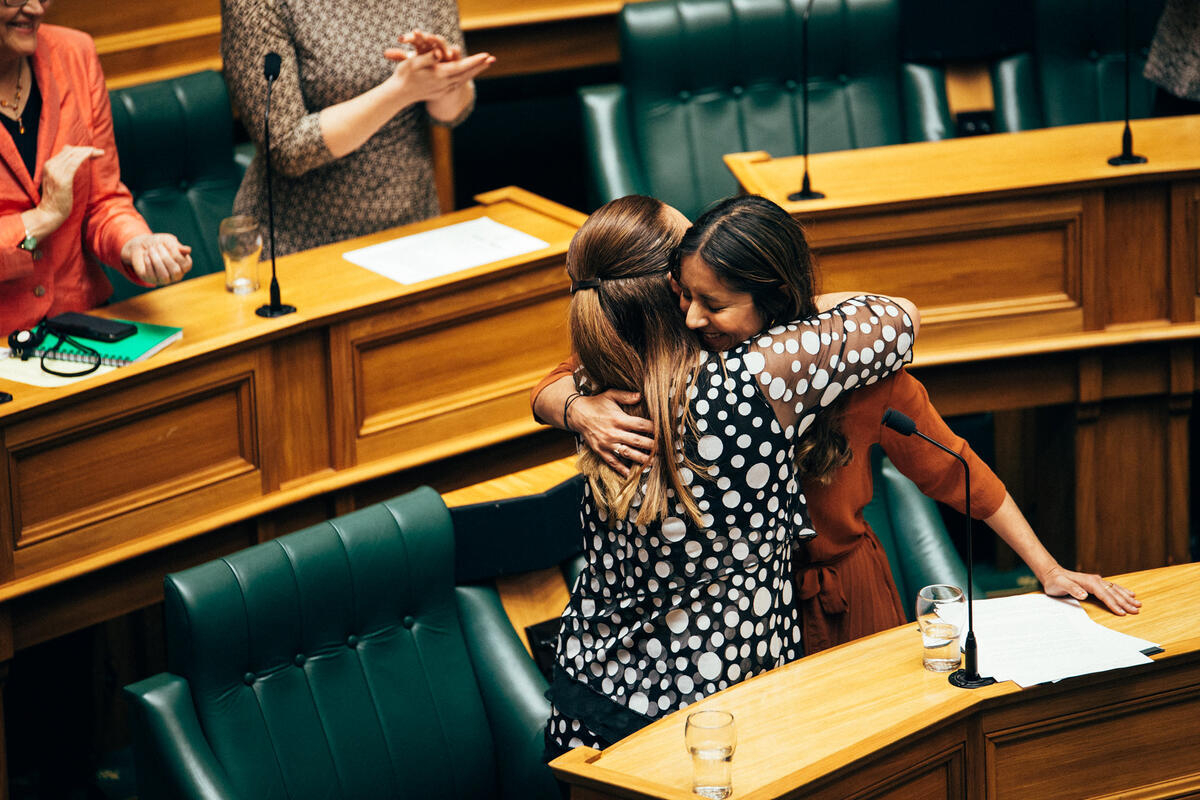
Golriz Ghahraman hugs a colleague in the New Zealand Parliament.
Can you tell us about your work on climate change and promoting sustainability? How has your personal journey affected your approach to these issues?
In my previous life, working on war crimes and genocidal tribunes, we knew those crises affect different communities very differently. Exactly the same thing will happen with the climate crisis. So poorer communities, working people, women, the rainbow community will be impacted differently, and refugees, in particular, will be on that front line. The way that we resource different communities to be able to withstand the crisis becomes important because we're all connected. We've got to lower emissions but also, we've got to look at mitigation.
In New Zealand, we see ourselves as an island in the South Pacific. Auckland, where I live, is one of the capitals of that South Pacific neighborhood. Those islands are literally being drowned by the climate crisis. We must not only give platforms for the Pacific nations, or the displaced community, they have to actually be at the decision-making table. That’s the weight we need to give those experiences.
You’ve written about your prior struggles with “imposter syndrome” – something many women and people from marginalized groups would recognize. What advice would you give to others experiencing similar feelings?
The term imposter syndrome places the onus on the person who’s having these feelings, as if there’s something wrong with them. Whereas a better way of looking at what we call imposter syndrome is to say that we're having very logical, valid responses to a world that is alien to us, that hasn't included us – whether it’s a boardroom, a courtroom, or the House of Representatives. It’s kind of societal level gaslighting.
There’s an expectation that you just have to break the glass ceiling and you can do it by backing yourself. However, we’re not received in the same way as men. It's not always about us pushing through. Sometimes you need to step back into your safe space, have venting conversations or be the person who's holding up another woman and just validate. Sharing and talking to others that you know you can relate to … that’s what got me through.
If there was one message you could share more widely about refugees – or send to people currently experiencing displacement – what would it be?
I think of refugees as being a testament to the strength and the goodness of the human spirit. Both in terms of the fact that the Refugee Convention exists, but also the fact that people continue to say, ‘I deserve to be free’, and they pack up their kids and they flee. It says something about us as a species that we take care of each other, and we fight for our freedom.



